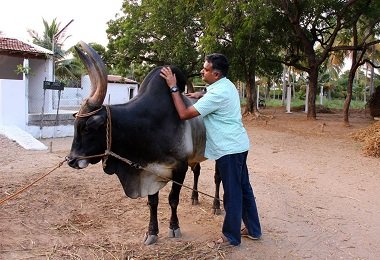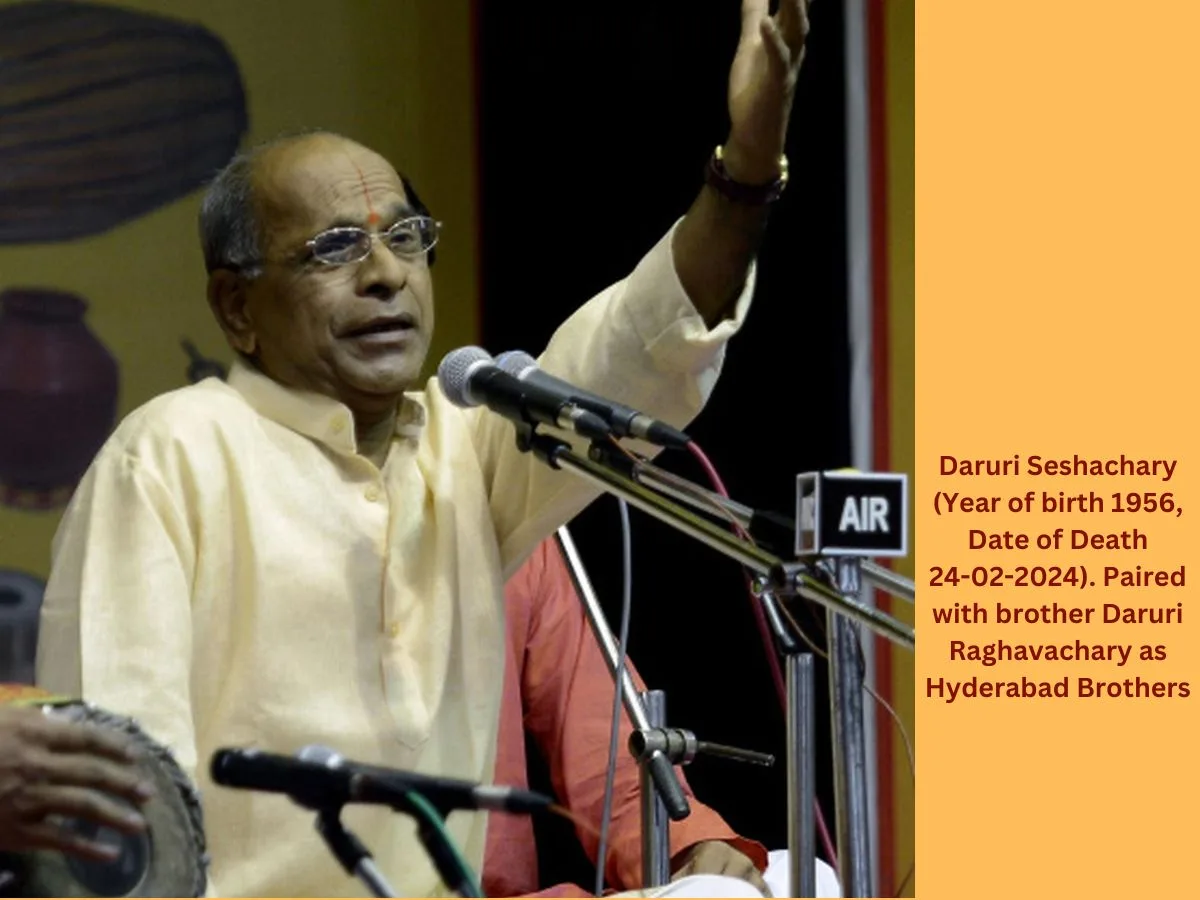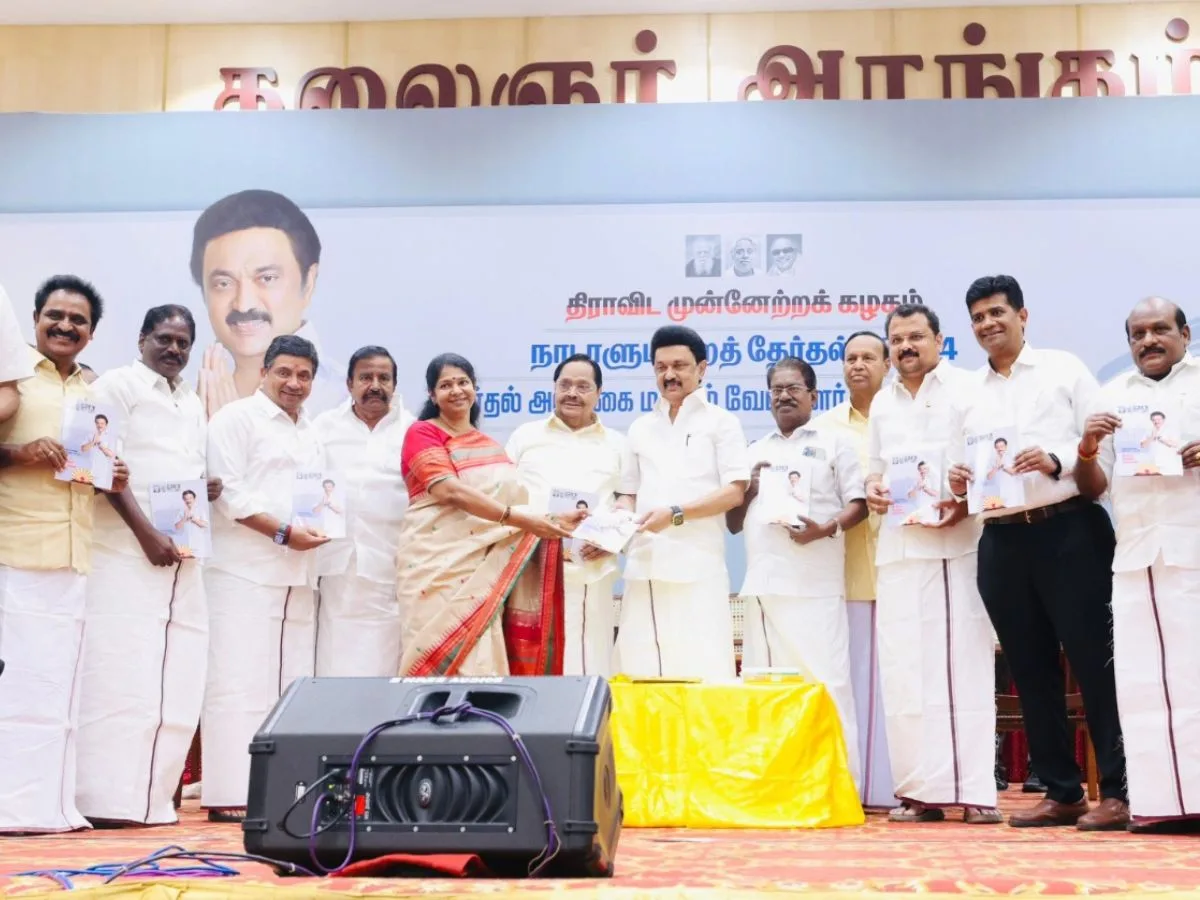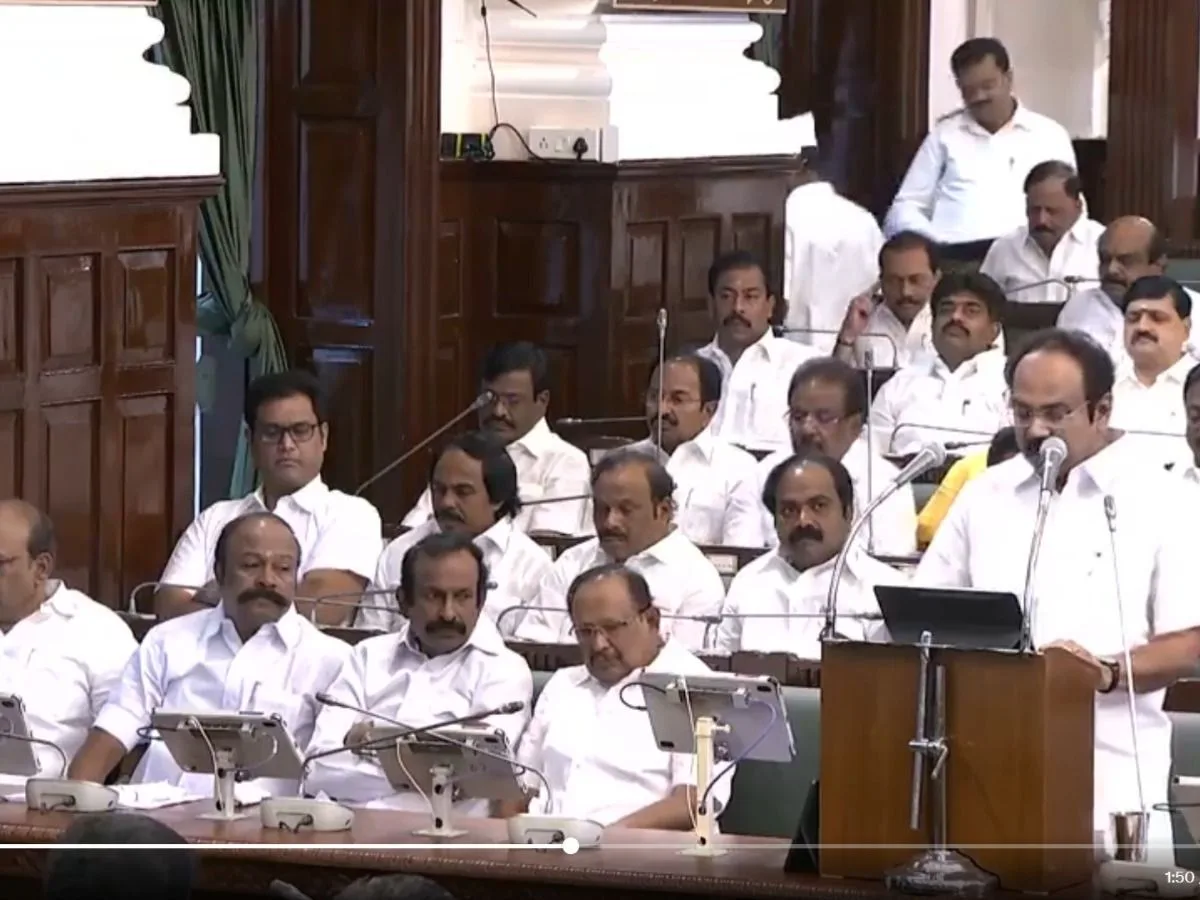Read in : தமிழ்
My dear friends, my last week column on an Erode farmer making soap from his Kangayam cow and living profitably has kicked off interest in a section of farmers. Many have asked me if it is necessary that only the dung of Kangayam cows serves the purpose of making soaps and whether other local cow breeds can’t?
Kangayam cow is native to kongu region and in many weddings a cow and a calf is given as wedding gift there. To many farmers in kongu region Kangayam cow is looked upon with reverence. To know the value of the breed I suggest at least once in his lifetime a farmer should visit the Sivasenapathy Kangeyam cattle trust at Kuttapalayam, Erode.
The breed derives its name from Kangayam division of the taluka spreading from Erode, Karur, Namakkal and Dindigul districts where this type of cattle has been in existence for a long time.
The animals are medium in build although larger specimens are rare. It is the best draught breed in South India, is hardy and thrives on scanty rations, according to Karthik.
Many native animals have all become extinct in the last 20 years, thanks to the government policy of introducing cross-bred animals and claiming that they will yield more milk than the native ones.
“Though to some extent it may be true that the cross-bred yielded some litres more it cannot be overlooked that these cross-bred are prone to a number of ailments which their humble native counterparts are not.”
The government’s animal husbandry department has a vested interest in supporting the cross-bred cow. Budget allocations cannot be spent on the native cow since the breed is robust and stays healthy. The cross-bred cow needs treatment and vouchers can be raised to claim money from the treasury.
The Kangayam breed is endowed with a strong body best for pulling carts and the milk is high in nutrition devoid of bad fat. The urine of the animal mixed with rotten fruits, vegetables and practically any kitchen waste is a good bio-fertilizer popularly known as ‘amrita karaisal’. “The urine and dung of the animals is best suited for natural farming practices.
Most of the animals are grey or white in colour with black markings. Like all local breeds Kangayam cows are poor milkers. The price of a cow is from Rs 25,000 to Rs 55,000 and bulls range from Rs 60,000 to Rs 80,000.
Lack of awareness of the distinct advantages of pure Kangeyam breed is a reason for its reduction in popularity among breeders today,” opines Karthik, managing trustee of the foundation who is doing sterling work in preserving the breed in his farm.
Today there is public awareness in saving almost all animals and birds. Take the case of the house sparrow. Today so many measures have been taken by several NGOs and public to revive it. Sadly in livestock sector till date not much attention has been made in Tamil Nadu state in conserving its native cattle breeds.
In the farm the herd is kept pure by careful selection of animals. A survey taken by the Tamil Nadu Veterinary and Animal Sciences University has found that the breed population in the tract has reduced 11 lakh in 1990 to 5 lakh by 2000. Another native breed, Alambady, has already become extinct. The Kangayam breed too is on the verge of dying out.
Farmers in Tamil Nadu who are into organic agriculture should take a pledge that each household will maintain at least one native cow of their region and use the animal’s waste for making their own input. In this way the manure for the fields can be met and at the same time they can get nutritious milk for their homes.
I know those who practice organic farming will agree that it is the native cow’s dung and urine that are important inputs for making any bio input for the farm and the responsibility is on us to preserve and popularise our own traditional breeds instead of buying HF or any other breeds which in the long run will prove to be un-renumerative.
Readers can contact Karthikeya Sivasenapathy at Senapathy Kangayam Cattle Research Foundation, Kuttappalyam, Palayamkottai village, KangayamTaluk, Tirupur District 638108, Tamil Nadu, email: karthikeyaksm@gmail.com, web: http://www.kangayambull.com, mobile: 9994433456, phone: 422 223 2818
Read in : தமிழ்











